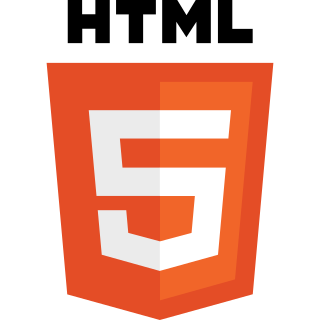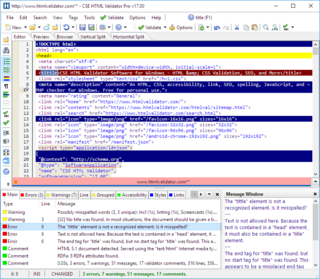Laura Lemay | |
|---|---|
 Lemay in 2006 | |
| Born | August 1, 1967 |
| Nationality | America |
| Occupations |
|
| Website | lauralemay.com |
Laura Lemay (born August 1, 1967) is an American author of technical books, most notably starting the SAMS Publishing "Teach Yourself" series.
Laura Lemay | |
|---|---|
 Lemay in 2006 | |
| Born | August 1, 1967 |
| Nationality | America |
| Occupations |
|
| Website | lauralemay.com |
Laura Lemay (born August 1, 1967) is an American author of technical books, most notably starting the SAMS Publishing "Teach Yourself" series.
Lemay works as a freelance technical writer. Beginning in the 1990s, she authored a series of instructional texts on web publishing, HTML, and Java. [1] [2] Her first book, Teach Yourself Web Publishing with HTML in a Week, demonstrated that HTML could be learned easily [3] and was the second guide on HTML to appear on the market. Her second book, Teach Yourself Java in 21 Days, promised to do the same for prospective Java users, and her 1997 book The Official Guide to Marimba's Castanet focused on push media. [1] 1997's Laura Lemay's Web Workshop: Javascript received positive reviews, and was praised as a "fine book" that came with helpful software. [4]
Andrew Leonard, writing for Salon.com, noted that Lemay's books (by the time of his 1997 article he counted 23) were an example of "Beta books", books about software that come bundled with software, and are regularly updated. [1]
Lemay lives in the Santa Cruz hills with her husband Eric. On December 19, 2022, she announced on her blog lauralemay.com that she had throat cancer. [5]

HyperText Markup Language or HTML is the standard markup language for documents designed to be displayed in a web browser. It defines the content and structure of web content. It is often assisted by technologies such as Cascading Style Sheets (CSS) and scripting languages such as JavaScript.
XSLT is a language originally designed for transforming XML documents into other XML documents, or other formats such as HTML for web pages, plain text or XSL Formatting Objects, which may subsequently be converted to other formats, such as PDF, PostScript and PNG. Support for JSON and plain-text transformation was added in later updates to the XSLT 1.0 specification.

Molly Miriam Esther Holzschlag was an American author, lecturer and advocate of the Open Web. She wrote or co-authored 35 books on web design and open standards, including The Zen of CSS Design: Visual Enlightenment for the Web. She was nicknamed the "Fairy Godmother of the Web".

XMLHttpRequest (XHR) is a JavaScript class containing methods to asynchronously transmit HTTP requests from a web browser to a web server. The methods allow a browser-based application to make a fine-grained server call and store the results in XMLHttpRequest's responseText attribute. The XMLHttpRequest class is a component of Ajax programming. Prior to Ajax, an HTML form needed to be completely sent to the server followed by a complete browser page refresh.
Apache Wicket, commonly referred to as Wicket, is a component-based web application framework for the Java programming language conceptually similar to JavaServer Faces and Tapestry. It was originally written by Jonathan Locke in April 2004. Version 1.0 was released in June 2005. It graduated into an Apache top-level project in June 2007.
Michael Wayne Morrison is an American author, software developer, and toy inventor. He is best known for his books on topics including Internet design and development, mobile device usage, and game programming.
Rogers Cadenhead is an American computer book author and web publisher who served from 2006 to 2008 as chairman of the RSS Advisory Board, a group that publishes the RSS 2.0 specification. He graduated from Lloyd V. Berkner High School in Richardson, Texas in 1985 and the University of North Texas in 1991.
Charles L. Perkins is the Founder and Chief Scientist of Virtual Rendezvous. He co-wrote a popular book on Java in October, 1995, and created some Java class hierarchy diagrams.
Nokia Browser for Symbian was the default web browser for the S60 and Symbian mobile phone platform. The browser is based on a port of Apple Inc.'s open-source WebCore and JavaScriptCore frameworks which form the WebKit rendering engine that Apple uses in its Safari Web browser.
A validator is a computer program used to check the validity or syntactical correctness of a fragment of code or document. The term is commonly used in the context of validating HTML, CSS, and XML documents like RSS feeds, though it can be used for any defined format or language.

Elizabeth Castro, sometimes known as Liz Castro, is an American author and translator best known for her books aimed to educate the reader on particular aspects of website development, such as HTML and Perl. From 1987 to 1993 Castro lived in Barcelona and managed the translation of computer programs. In 1993 she moved back to the United States to write books about using the internet and World Wide Web.

HTML5 is a markup language used for structuring and presenting hypertext documents on the World Wide Web. It was the fifth and final major HTML version that is now a retired World Wide Web Consortium (W3C) recommendation. The current specification is known as the HTML Living Standard. It is maintained by the Web Hypertext Application Technology Working Group (WHATWG), a consortium of the major browser vendors.
Unobtrusive JavaScript is a general approach to the use of client-side JavaScript in web pages so that if JavaScript features are partially or fully absent in a user's web browser, then the user notices as little as possible any lack of the web page's JavaScript functionality. The term has been used by different technical writers to emphasize different aspects of front-end web development. For some writers, the term has been understood more generally to refer to separation of functionality from a web page's structure/content and presentation, while other writers have used the term more precisely to refer to the use of progressive enhancement to support user agents that lack certain JavaScript functionality and users that have disabled JavaScript. Following the latter definition, unobtrusive JavaScript contributes to web accessibility insofar as it helps ensure that all users—whatever their computing platform—get roughly equal access to all of the web page's information and functionality.
Extensible HyperText Markup Language (XHTML) is part of the family of XML markup languages which mirrors or extends versions of the widely used HyperText Markup Language (HTML), the language in which Web pages are formulated.
In computing, Facelets is an open-source Web template system under the Apache license and the default view handler technology for Jakarta Server Faces. The language requires valid input XML documents to work. Facelets supports all of the JSF UI components and focuses completely on building the JSF component tree, reflecting the view for a JSF application.

EPUB is an e-book file format that uses the ".epub" file extension. The term is short for electronic publication and is sometimes stylized as ePub. EPUB is supported by many e-readers, and compatible software is available for most smartphones, tablets, and computers. EPUB is a technical standard published by the International Digital Publishing Forum (IDPF). It became an official standard of the IDPF in September 2007, superseding the older Open eBook (OEB) standard.

CSS HTML Validator is an HTML editor and CSS editor for Windows that helps web developers create syntactically correct and accessible HTML/HTML5, XHTML, and CSS documents by locating errors, potential problems like browser compatibility issues, and common mistakes. It is also able to check links, check spelling, suggest improvements, alert developers to deprecated, obsolete, or proprietary tags, attributes, and CSS properties, and find issues that can affect search engine optimization.

Mike Cohn is one of the contributors to the Scrum software development method. He is one of the founders of the Scrum Alliance.
XHTML+RDFa is an extended version of the XHTML markup language for supporting RDF through a collection of attributes and processing rules in the form of well-formed XML documents. XHTML+RDFa is one of the techniques used to develop Semantic Web content by embedding rich semantic markup. Version 1.1 of the language is a superset of XHTML 1.1, integrating the attributes according to RDFa Core 1.1. In other words, it is an RDFa support through XHTML Modularization.
XMLmind XML Editor is a strictly validating, near WYSIWYG, XML editor.
{{cite web}}: CS1 maint: archived copy as title (link)